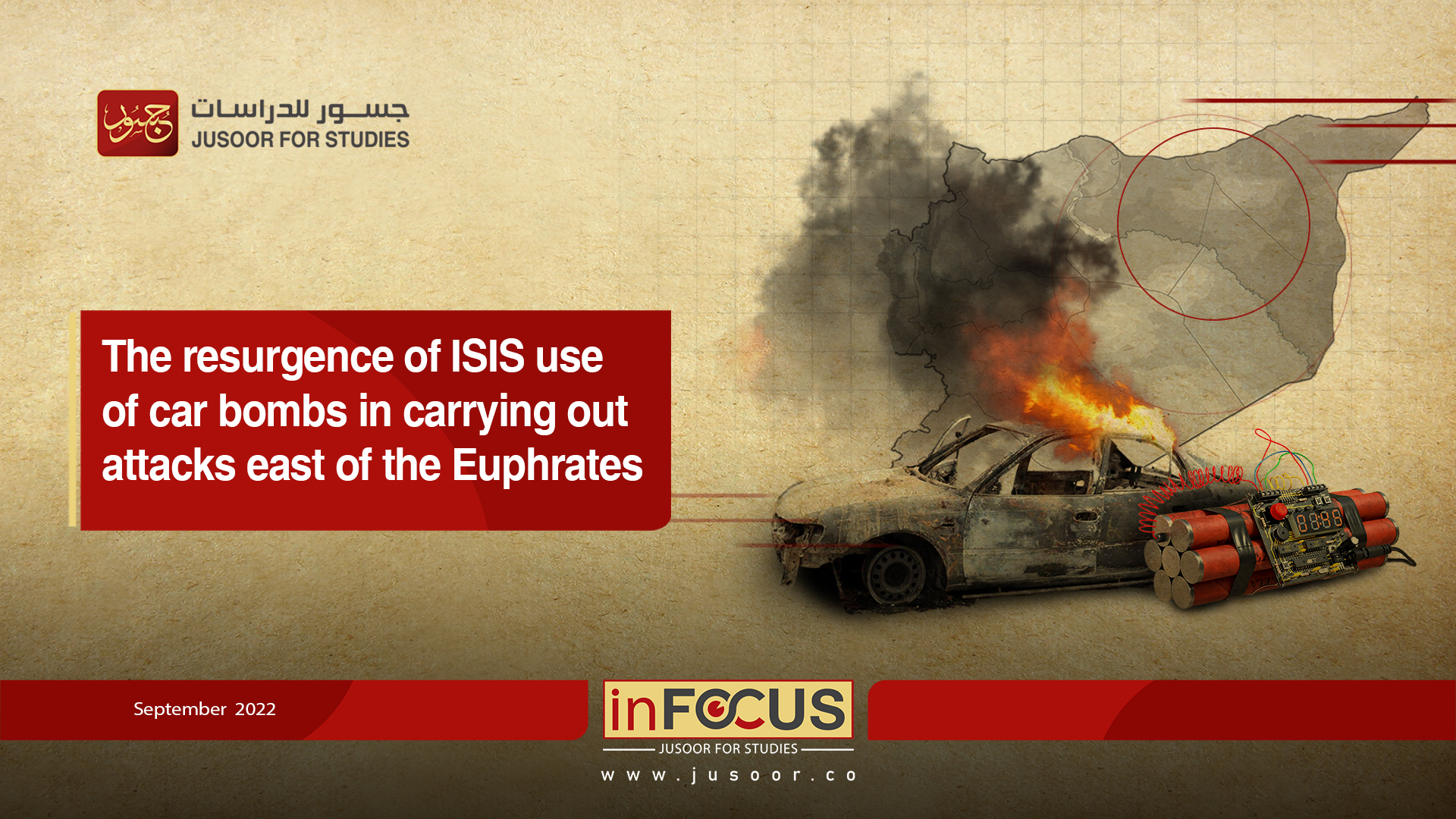The resurgence of ISIS use of car bombs in carrying out attacks east of the Euphrates
Since 2019, ISIS has significantly and unprecedentedly increased the use of car and motorcycle bombs during carrying out attacks against the interests of the Syrian Democratic Forces (SDF) and the US-led International Coalition east of the Euphrates.
From mid-August until September 20, 2020, the International Coalition thwarted 3 car bombings, one of which targeted the city of Al-Hasakah and the Al-Hol camp in the east of the governorate. Meanwhile, the organization was able to detonate a motorcycle in Al-Tuwainah camp, in the west of the governorate.
This means that the organization is preparing or has serious intentions to carry out more suicide attacks east of the Euphrates, while the international coalition has been ready to carry out preventive operations aimed at thwarting any attempt in this regard, as the latter conducted training and maneuvers with SDF on September 7, aimed at monitoring and following-up the activity of ISIS cells and conducting preemptive strikes against them.
In fact, ISIS’s return to using suicide attacks is often linked to efforts to re-simulate the process of demolishing the walls in al-Hol camp, which it had previously carried out in Ghweran Prison in early 2022. During the aforementioned operation, militants of the group managed to achieve a security breach in the ranks of the SDF and release at least 300 of its detained members.
In addition to the fact that most of the attempts that were conducted or thwarted that were targeting al-Hol camp coincided with the security operation carried out by the international coalition in an attempt to dismantle the organization’s networks. This also shows the coalition's fears about the ISIS efforts, which consequently was reflected in the trend announced by the coalition to evacuate the camp's residents.
This would end the organization's chances of rebuilding its security network, and depriving it from supplying its forces with militants that are well-experienced in attrition engagements. This is to be added to the retreat the group is facing at the levels of central and decentralized command after extensive operations against it.
In any case, the resurgence of the organization's use of suicide attacks reflects its continued high ability to secure the resources necessary to carry out more operations, including explosive materials and vehicles, and other logistical requirements such as funds, roads and transportation lines.
However, it seems that the organization has become more exposed to the international coalition than ever before. Consequently, ISIS will be exposed to more preemptive operations that will lead to thwarting any new attempts to demolish the walls and drain more of its leadership capabilities. As such, this will push it to retreat into the position of defeat that it experienced after losing militarily in 2019.

